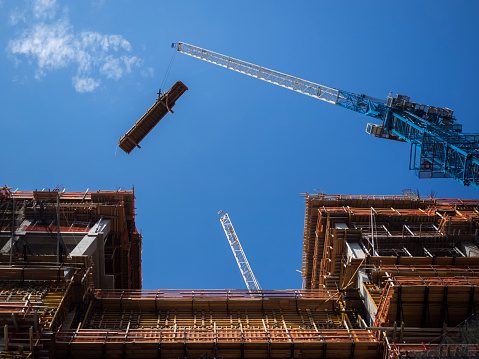NYC Developers Rushed to Beat 421a Expiration in 2022, Data Shows
By Mark Hallum November 11, 2022 3:15 pm
reprints
The expiration of the 421a tax benefit on June 15 drove building permits for multifamily homes through the roof, according to new data from the New York City Department of Buildings (DOB).
The DOB issued permits for 58,623 multifamily units in the first half of 2022, a huge leap from the 23,322 permits the agency issued last year, THE CITY first reported.
But the spike in permits wasn’t unprecedented. After a similar version of 421a expired in 2015, developers rushed to deliver 60,487 units over the course of that year.
Developers issued permits that qualified for the 421a abatement are required to complete construction within four years. According to the New York City Department of City Planning (DCP), which crunched the DOB data, about 80 to 90 percent of 421a projects are finished within that window. But that may not be the case in this market.
Rising interest rates and inflation will mean a slimmer portion of these permitted projects will see completion in four years, according to the DCP.
The 421a tax benefit allowed developers to pay little or no property taxes if they set aside 25 to 30 percent of units in a project for affordable housing or if they paid union-scale wages to construction workers.
Proponents of the program argued that, without those tax benefits, there is little incentive to build housing in the city, and claim that 421a was responsible for the bulk of new multifamily units in the last eight years.
“It is simply not economically feasible to build new rental buildings, particularly those with an affordable component, without the tax abatement,” Bob Knakal, chairman of JLL capital markets team in New York, wrote in a recent Commercial Observer column. “Therefore, buildings are not being built, and this constrains supply. This program does not involve writing a check to developers. The city collects the same real estate taxes they were receiving before, and the taxes will eventually be significantly higher than they are today. They are simply temporarily lower than they will eventually be.”
The real estate industry is pushing Gov. Kathy Hochul to implement a replacement for 421a. But critics of the abatement argue 421a allowed for the construction of luxury apartment buildings where affordable units should have been built, creating housing priced well above what the average family could afford.
“The 421a incentive is a fix for the fact that multifamily rental properties are shouldered with a huge burden of the city’s property taxes,” Cea Weaver, campaign coordinator for Housing Justice for All, a grassroots tenants coalition, previously told CO. “It drives up rents for every other building that isn’t getting the tax exemption, and that’s bad for tenants. Ultimately it’s not a very good way to subsidize the production of low-income housing, and that’s what we need to focus our subsidies on.”
Mark Hallum can be reached at mhallum@commercialobserver.com.



